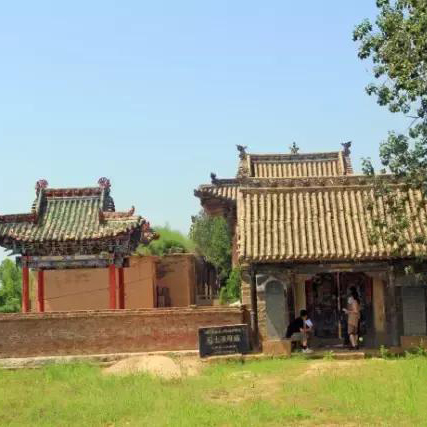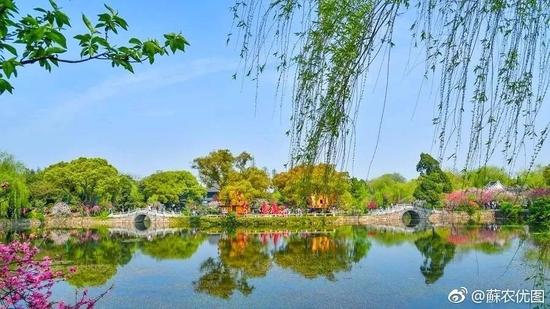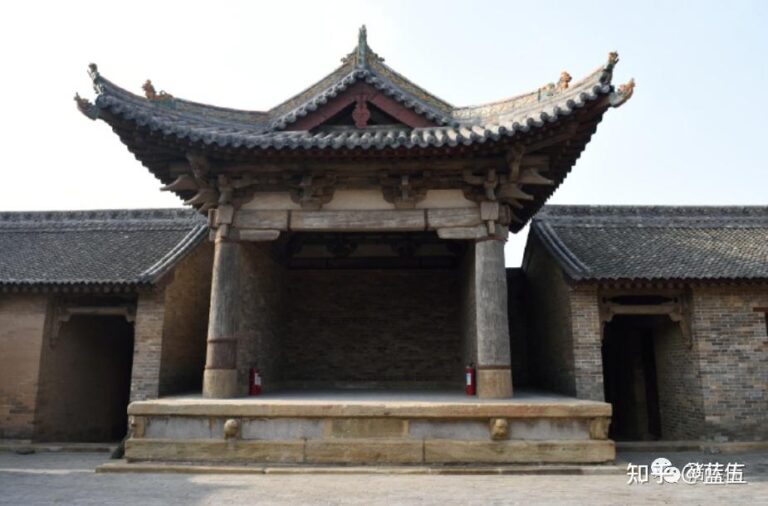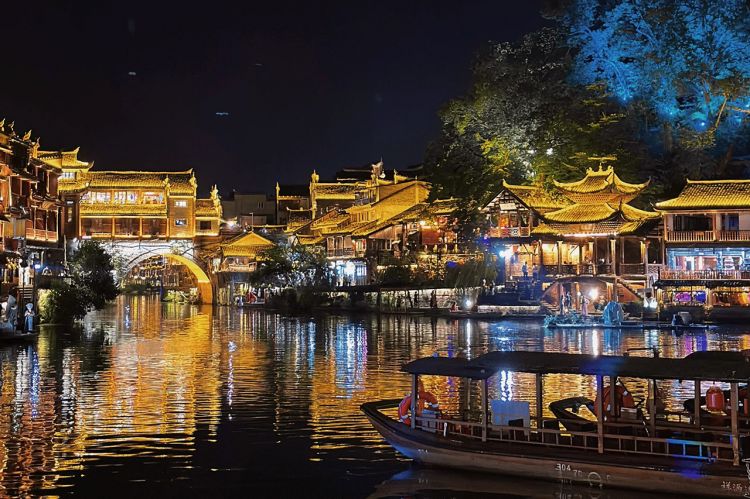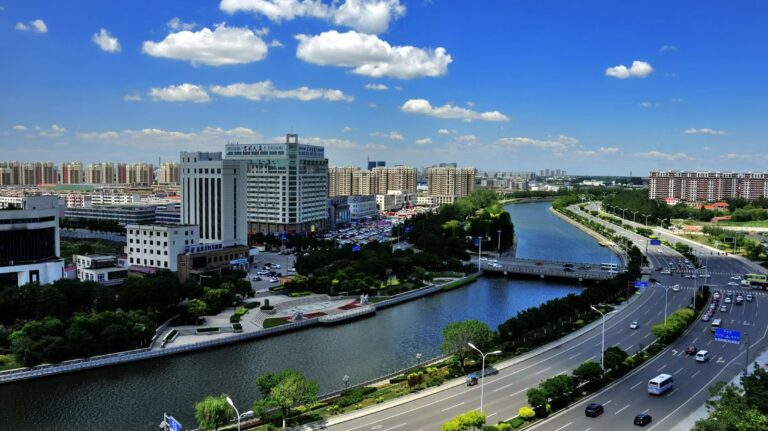Taste the Flavors of Heilongjiang: Culinary Delights in Qiqihar’s Dujunshu Jiuzhi
An Essential Guide to Visiting Qiqihar Heilongjiang Dujunshu Jiuzhi
In This Guide
- An Essential Guide to Visiting Qiqihar Heilongjiang Dujunshu Jiuzhi
- The Rich History of Qiqihar Heilongjiang Dujunshu Jiuzhi
- Main Highlights: What to See at Qiqihar Heilongjiang Dujunshu Jiuzhi
- Planning Your Visit: A Practical Guide
- Tickets, Hours, and Booking
- How to Get There
- Local Cuisine and Accommodation
- Frequently Asked Questions
- Final Thoughts on Your Trip
Nestled in the heart of Qiqihar, Heilongjiang Province, the Dujunshu Jiuzhi (督军署旧址) stands as a remarkable vestige of China’s tumultuous transition from imperial rule to the establishment of the Republic. This historic site, originally constructed in 1806 as the private residence of a Qing dynasty vice-governor, later evolved into the political and military command center for the region during the early 20th century.
The Dujunshu, or Military Governor’s Mansion, served as the nerve center for significant governmental decisions under the Beiyang government, particularly during the chaotic years following the Xinhai Revolution of 1911. Once the seat of power for influential figures like Song Xiaolian and Ma Zhanshan, it played a pivotal role in the resistance against foreign aggression, marking it as the backdrop for the first armed conflict against Japanese invasion in the Jiangqiao Battle.
Visitors to this elegant yet imposing structure will find themselves walking through time, where the architectural grandeur reflects a blend of traditional Chinese styles infused with Western elements. As the site has undergone recent renovations, it now operates as a museum, offering insights into the rich tapestry of historical narratives that shaped the region. With free admission, the Dujunshu Jiuzhi invites you to explore its tranquil gardens, intricate courtyard designs, and exhibits that illuminate the profound legacy of Qiqihar and its place in Chinese history.
Whether you’re a history buff, an architecture enthusiast, or simply curious about China’s past, the Dujunshu Jiuzhi promises a captivating glimpse into the era of warlords and revolution, making it a must-see destination in this often-overlooked corner of Northeast China.
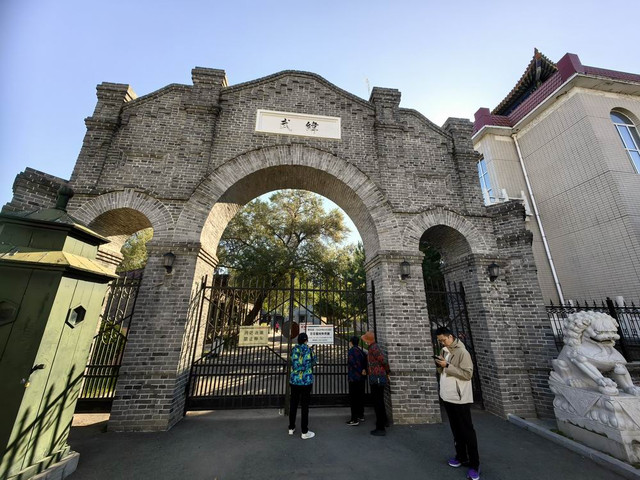
Qiqihar Heilongjiang Dujunshu Jiuzhi.
The Rich History of Qiqihar Heilongjiang Dujunshu Jiuzhi
The Heilongjiang Military Governor’s Mansion, or Dujunshu Jiuzhi, is a significant historical site located in Qiqihar, Heilongjiang Province. Constructed in the early 19th century, its origins trace back to the Qing Dynasty, specifically to 1806 when it was built as the residence of the Vice Governor of Heilongjiang. Originally known as the Daren Mansion, it was expanded and renovated during the late Qing era under the supervision of military governors Cheng Dequan and Zhou Shumo.
By 1912, following the fall of the Qing Dynasty and the establishment of the Republic of China, the mansion transformed into the Military Governor’s Office for Heilongjiang Province. This marked its significance as a pivotal center for political, military, and economic affairs in the region. During the turbulent years of the Republic, it was not merely a governmental building; it became a symbol of the struggle for modernity and independence amid the rapid changes sweeping through China.
The Dujunshu Jiuzhi served as the operational headquarters during the Second Sino-Japanese War, particularly noted for its role in the Jiangqiao Resistance, which is regarded as one of the first armed confrontations against Japanese forces. General Ma Zanshan, a key military leader, commanded operations from this site, further solidifying its importance in China’s military history.
Architecturally, the structure showcases a blend of traditional Chinese courtyard design with Western influences, reflecting the cultural exchanges of the time. The current building retains much of the original layout and design, encompassing a main two-story building surrounded by single-story structures, embodying a unique aesthetic that harmonizes functionality with historical elegance.
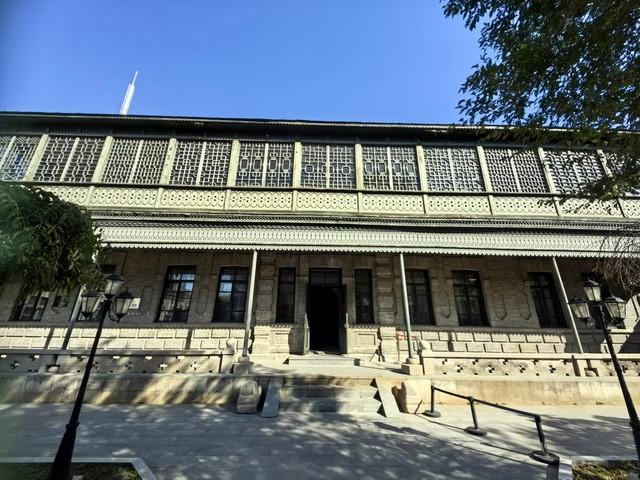
Qiqihar Heilongjiang Dujunshu Jiuzhi.
As the political landscape of China shifted over the decades, the Dujunshu Jiuzhi continued to witness significant events, housing numerous military governors, including notable figures such as Song Xiaolian, Wan Fulin, and Ma Zanshan. Each leader contributed to its legacy, shaping not only regional governance but also impacting national affairs during a transformative period in Chinese history.
In recent years, the site has been recognized as a national key cultural relic, with efforts made to preserve its integrity and historical significance. Guided tours and exhibitions often highlight its storied past, inviting visitors to reflect on the complexities of China’s journey towards modern statehood. The Heilongjiang Military Governor’s Mansion stands today not only as a museum but as a testament to the resilience and evolution of a region deeply intertwined with the broader narratives of Chinese history.
Main Highlights: What to See at Qiqihar Heilongjiang Dujunshu Jiuzhi
Visitors to Qiqihar’s Heilongjiang Dujunshu Jiuzhi (黑龙江督军署旧址) are in for a captivating journey through history. This site, originally constructed in 1806 as a private residence for the vice-governor, evolved into a significant military and political center during the Republic of China era. Here are some highlights to explore during your visit:
Historical Significance
The Heilongjiang Dujunshu served as the highest political and military authority in the province from 1912 onward. It was the command center for notable military leaders, including General Ma Zhanshan, who famously led the first armed resistance against Japanese invasion in the Jiangqiao Battle. The building stands as a testament to the region’s tumultuous past and the quest for national sovereignty.
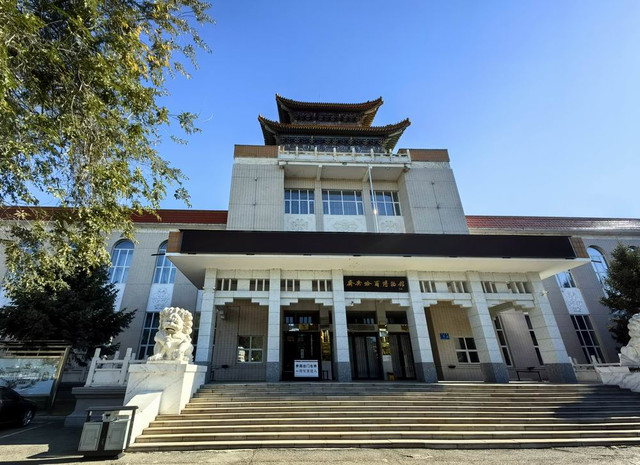
Qiqihar Heilongjiang Dujunshu Jiuzhi.
Architectural Charm
The structure is a blend of traditional Chinese courtyard design and Western architectural elements. The main building features intricate details with its blue brick facade and elegant courtyard layout, making it a visual delight for architecture enthusiasts. Visitors can wander through its remaining halls and appreciate the well-preserved features that echo the grandeur of its historical significance.
Cultural Insights
As part of the Qiqihar Museum complex, the Dujunshu provides a deeper understanding of the local culture and history. The exhibits chronicle the evolution of governance in Heilongjiang and highlight the pivotal moments in Chinese history that unfolded within its walls.
Free Admission
One of the best parts of visiting the Heilongjiang Dujunshu is that entry is free. This allows visitors to immerse themselves in the site without the concern of ticket prices, making it an accessible option for travelers.
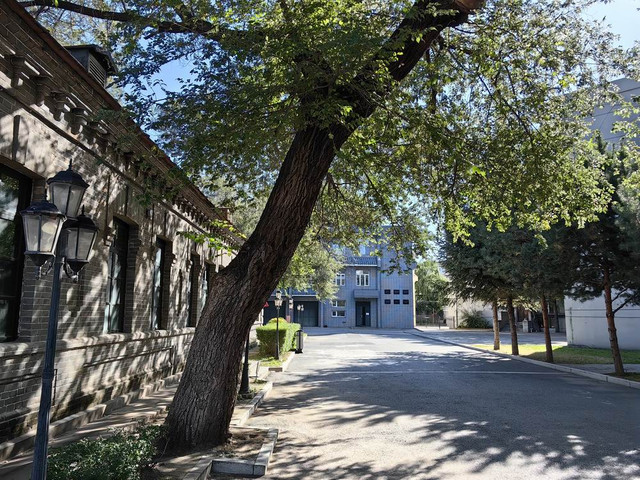
Qiqihar Heilongjiang Dujunshu Jiuzhi.
Convenient Location
Situated at the intersection of Bukui Street and Zhonghua Road, the Dujunshu is easily reachable within the city. It’s adjacent to other notable attractions, such as the Qiqihar Museum and Longsha Park, making it a perfect stop for a day of exploration.
Visiting Hours
The site is open from Tuesday to Sunday, with hours from 9:00 AM to 6:00 PM. It’s advisable to check for any specific visiting restrictions or renovations that may be in effect.
Whether you’re a history buff or simply looking to soak in the culture of Qiqihar, the Heilongjiang Dujunshu Jiuzhi offers a unique glimpse into the past, providing context to the modern landscape of this vibrant city. Don’t forget your camera—every corner is a potential photo opportunity!
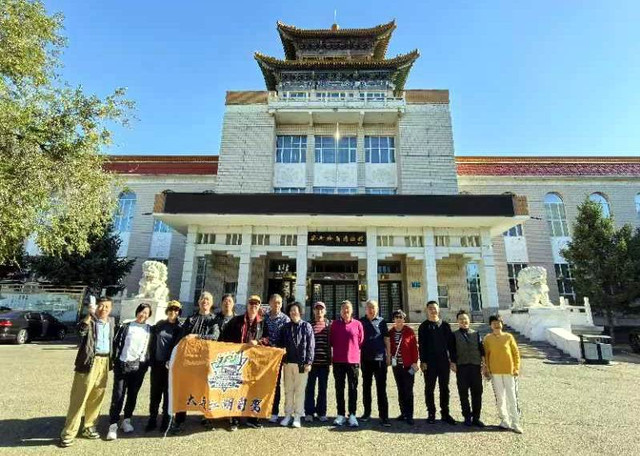
Qiqihar Heilongjiang Dujunshu Jiuzhi.
Planning Your Visit: A Practical Guide
Practical Guide to the Heilongjiang Military Governor’s Mansion in Qiqihar
Visiting the Heilongjiang Military Governor’s Mansion, known locally as 黑龙江督军署 (Heilongjiang Dujunshu), is a remarkable journey into China’s rich past. This historical site, located in the heart of Qiqihar, is not only an architectural gem but also a monument to the region’s political and military history during the Republic of China era. Here’s everything you need to know to make the most of your visit.
Location and Access
The Heilongjiang Military Governor’s Mansion is situated at the intersection of Bukui Street and Zhonghua Road in Qiqihar’s Jianhua District, adjacent to the Qiqihar Museum. This prime location makes it easily accessible from various points in the city.
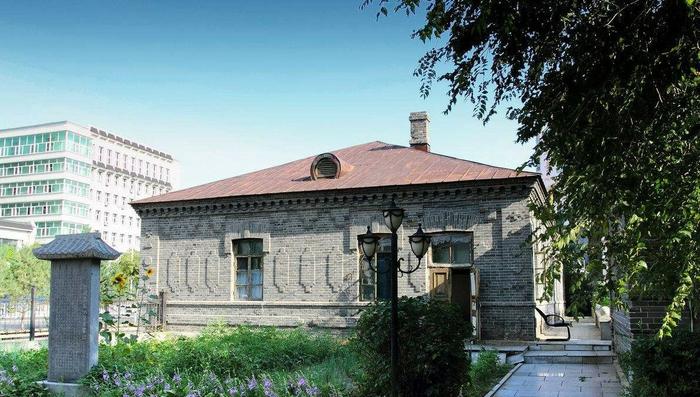
Qiqihar Heilongjiang Dujunshu Jiuzhi.
Getting There:
– Public Transport: You can take public buses 101, 103, 106, 10, 11, 104, or 610 and alight at the Jiefangmen stop, which is a short walk from the mansion.
– By Taxi: Taxis are readily available throughout the city and can provide a convenient way to reach the site directly.
Opening Hours
The mansion is open to visitors from Tuesday to Sunday, with hours from 9:00 AM to 6:00 PM. Note that the last entry is at 5:30 PM. It is closed on Mondays, so plan your visit accordingly.
Admission Fee
Entry to the Heilongjiang Military Governor’s Mansion is free, making it an excellent choice for budget-conscious travelers interested in history and architecture.
Suggested Visit Duration
A visit typically takes 1 to 2 hours. This time frame allows for a thorough exploration of the mansion’s interior and its surrounding grounds, where you can immerse yourself in the historical context and architectural details.
Historical Significance
Originally built in the 19th century as a private residence for the Vice Governor of Heilongjiang, the mansion later became the political and military headquarters during the Republic of China. It showcases a blend of traditional Chinese architectural styles with Western influences, reflecting the historical period’s cultural exchanges.
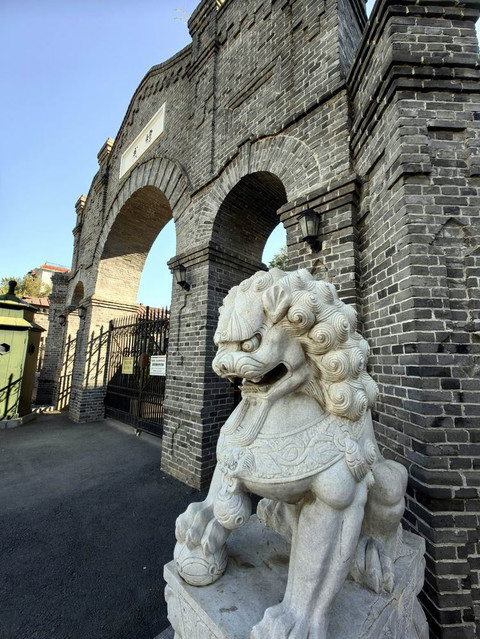
Qiqihar Heilongjiang Dujunshu Jiuzhi.
What to Expect
- Architecture: The mansion features a courtyard layout typical of traditional Chinese homes, with a grand two-story main building and several adjacent single-story structures. The intricate designs, including beautiful lattice work and classic Chinese decorative elements, provide a stunning backdrop for photography.
- Exhibitions: Inside, you will find exhibits that detail the history of the building and the significant events that took place here, including the strategic operations during the early years of the Republic of China.
- Nearby Attractions: After visiting the mansion, consider exploring the adjacent Qiqihar Museum for deeper insights into the region’s history, or take a stroll in the nearby Longsha Park, which is known for its lush greenery and tranquil environment.
Dining and Amenities
While there are no dining facilities within the mansion itself, nearby areas are filled with local eateries. Be sure to try some of the famous Qiqihar barbecue, which is a staple of local cuisine.
Tips for Visitors
- Dress Appropriately: The mansion requires a fair amount of walking through its grounds, so wear comfortable shoes.
- Photography: Capture the beauty of the architecture and the serene gardens, but be respectful of the historical significance of the site.
- Plan for Weather: Check the weather forecast before your visit, as Qiqihar can experience varying temperatures throughout the year. Bringing an umbrella or jacket may be wise, depending on the season.
- Cash is King: While many places accept digital payments, some local eateries may only accept cash, so having some on hand is advisable.
In conclusion, a visit to the Heilongjiang Military Governor’s Mansion is a culturally enriching experience that offers a glimpse into China’s history. With its inviting atmosphere and historical significance, it promises to be a highlight of your trip to Qiqihar.
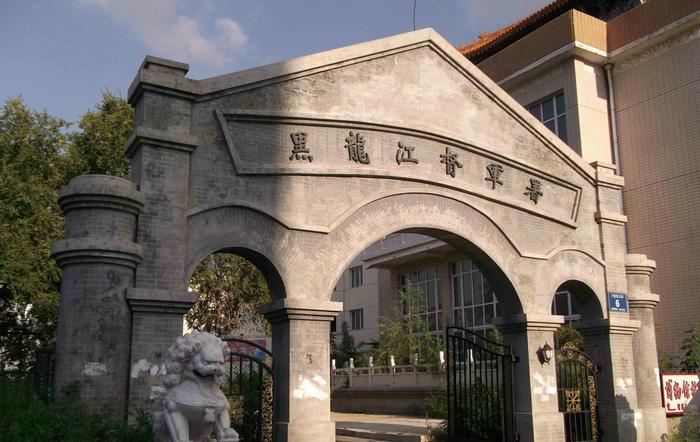
Qiqihar Heilongjiang Dujunshu Jiuzhi.
Tickets, Hours, and Booking
Visitors to the Heilongjiang Military Governor’s Mansion (黑龙江督军署旧址) in Qiqihar will be pleased to know that entry is completely free of charge. This historic site serves not only as a significant cultural landmark but also as a museum that showcases the rich history of the region, particularly during the Republican era of China.
The mansion, originally built in 1806, has undergone various renovations and is now a well-preserved example of early 20th-century architecture. It is recommended that guests allocate approximately 1 to 2 hours for their visit to fully appreciate the exhibits and the surrounding grounds.
The site is open to the public from Tuesday to Sunday, with operating hours from 9:00 AM to 6:00 PM. Visitors are advised to arrive by 5:30 PM at the latest to ensure ample time for exploration before closing.
For those planning to visit, the mansion is conveniently located near the intersection of Bukui Street and Zhonghua Road, adjacent to the Qiqihar Museum. Public transportation options include several bus routes that stop at the nearby Liberation Gate station, making it easily accessible for tourists and locals alike.
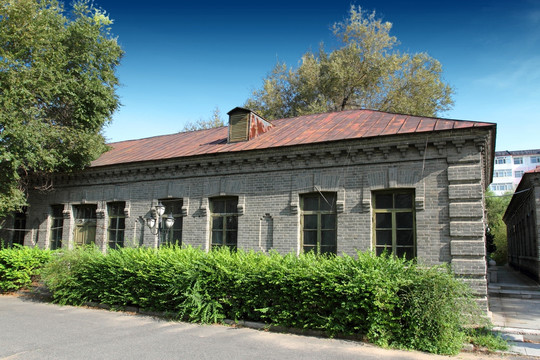
Qiqihar Heilongjiang Dujunshu Jiuzhi.
Overall, the Heilongjiang Military Governor’s Mansion offers a valuable insight into the region’s past without any financial barrier, making it a must-see destination for anyone interested in Chinese history and architecture.
How to Get There
When planning your visit to the Heilongjiang Dujunshu Jiuzhi (黑龙江督军署旧址) in Qiqihar, understanding the local transportation options is essential for a smooth experience. Here’s a comprehensive guide to help you navigate the area with ease.
Getting There
By Air
The nearest airport to Qiqihar is the Sanjiazi Airport (三家子机场), located approximately 20 kilometers from the city center. From the airport, you can take a taxi or arrange for a private transfer to reach downtown Qiqihar.
By Train
Qiqihar is well-connected by rail, making train travel a convenient option. You can arrive at either Qiqihar Railway Station (齐齐哈尔站) or Qiqihar South Railway Station (齐齐哈尔南站). Both stations have regular services to major cities in China, including Harbin and Shenyang. Upon arrival, taxis are available outside the stations to take you to your destination.
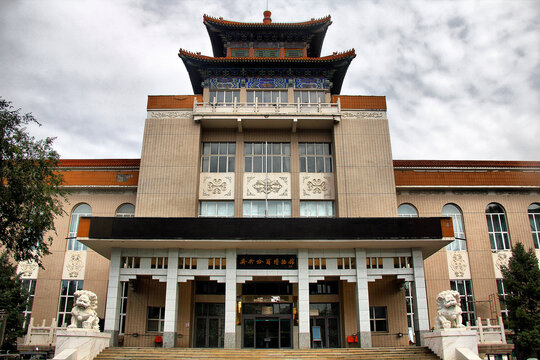
Qiqihar Heilongjiang Dujunshu Jiuzhi.
By Bus
For those traveling from nearby cities, long-distance buses are also an option. Buses typically arrive at the Qiqihar Long-distance Bus Station, located in the city center. Local buses can then be used to reach specific attractions, including the Dujunshu Jiuzhi.
Getting Around Qiqihar
Public Transport
Qiqihar has a convenient public bus system that covers most parts of the city. The following bus lines pass near the Dujunshu Jiuzhi:
– Bus 101
– Bus 103
– Bus 106
– Bus 10
– Bus 11
– Bus 104
– Bus 610
You can disembark at the “Jiefangmen Station” (解放门站), which is within walking distance of the site.
Taxis and Ride-Hailing
Taxis are widely available and are a reliable way to travel within the city. The starting fare is relatively low, making them an economical choice for short distances. Alternatively, ride-hailing apps are also functional in Qiqihar, providing an easy way to request transportation.
Walking
The Dujunshu Jiuzhi is conveniently located near other historical sites, including the Qiqihar Museum. If you’re staying nearby, walking is a pleasant option that allows you to explore the local environment at your own pace.
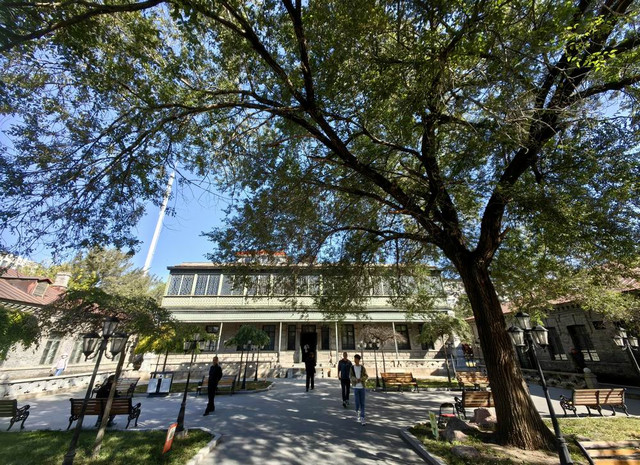
Qiqihar Heilongjiang Dujunshu Jiuzhi.
Recommendations
- Plan Ahead: If you are arriving via train or plane, consider booking your transportation in advance to avoid delays.
- Local Currency: Keep some cash on hand, as some local transportation options may not accept credit cards.
- Travel Times: Be mindful of peak travel times, particularly during weekends and public holidays, as transportation can become crowded.
With these transportation options at your disposal, visiting the Heilongjiang Dujunshu Jiuzhi will be a straightforward and enjoyable part of your Qiqihar experience.
Local Cuisine and Accommodation
When visiting the historic site of the Heilongjiang Military Governor’s Mansion in Qiqihar, you’ll find plenty of delightful culinary options and comfortable accommodations nearby. This area offers a unique blend of local flavors and hospitality that will enhance your experience of this culturally rich destination.
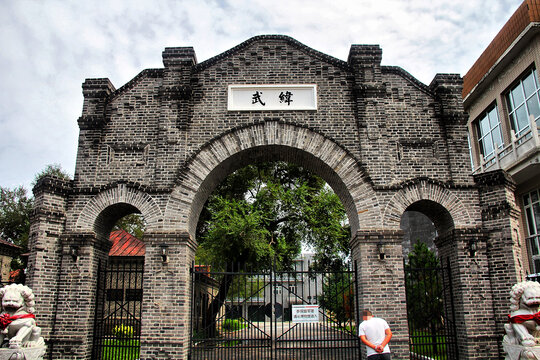
Qiqihar Heilongjiang Dujunshu Jiuzhi.
Culinary Delights
1. Huibin Baozi Lou (汇宾包子楼)
Kick off your day with breakfast at Huibin Baozi Lou, renowned for its juicy and flavorful dumplings. These steamed buns are bursting with fillings and are a local favorite, perfect for a quick and satisfying start before exploring the sights.
2. Bukui Flavor Street (卜奎风味便宜坊)
For lunch, head to Bukui Flavor Street, where local culinary treasures await. Here, you can enjoy authentic northeastern barbecue, braised fish in rich sauces, and savory tofu rolls at reasonable prices. This bustling street is a hotspot for both locals and tourists seeking a genuine taste of Qiqihar.
3. Longsha Night Market (龙沙夜市)
As the sun sets, immerse yourself in the lively atmosphere of Longsha Night Market. This is the place to be for an eclectic mix of street food, including skewered meats, stir-fried ice cream, candied fruits, and hearty stews. The vibrant ambiance and variety of food stalls make it an ideal spot to experience the local nightlife.
4. Miaojiu Hotpot (妙之味火锅)
If you’re looking for a unique dining experience, consider visiting Miaojiu Hotpot. This local hotpot restaurant offers a selection of fresh ingredients to cook in aromatic broth right at your table. It’s a great way to enjoy a leisurely meal with family or friends while savoring the warmth of northeastern cuisine.
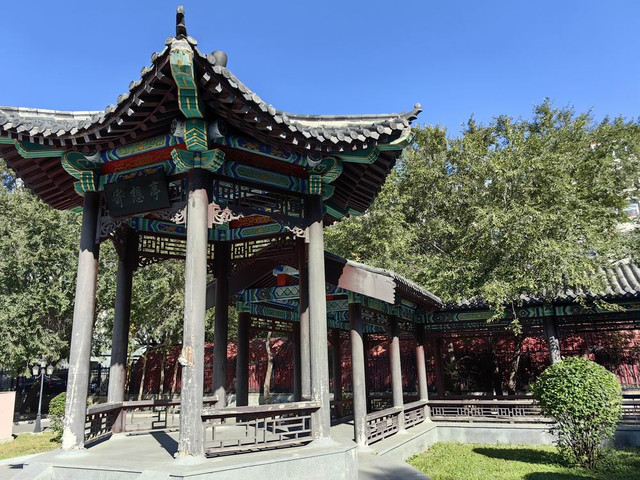
Qiqihar Heilongjiang Dujunshu Jiuzhi.
Recommended Accommodations
1. Junhui International Hotel (君汇国际酒店)
Situated conveniently near Longsha Park, the Junhui International Hotel provides modern accommodations with various amenities, including free Wi-Fi and a fitness center. Its proximity to key attractions and dining options makes it a top choice for travelers.
2. Ibis Styles Qiqihar (齐齐哈尔卜奎宜必思酒店)
The Ibis Styles offers a comfortable stay with modern décor at an affordable price. Located close to the city center, it provides easy access to both the Heilongjiang Military Governor’s Mansion and local eateries. Guests appreciate the clean and cozy rooms along with friendly service.
3. Home Inn (如家酒店)
Another excellent budget option is Home Inn, known for its simplicity and comfort. It’s a short distance from popular tourist sites, making it a convenient base for your explorations. The hotel offers essential amenities and a warm atmosphere that welcomes visitors.
With these food and accommodation options, your visit to Qiqihar will be not just a cultural journey through history but also a delightful experience of local flavors and hospitality. Whether you’re feasting on street food or relaxing in a comfortable hotel, you’re sure to create lasting memories in this charming city.
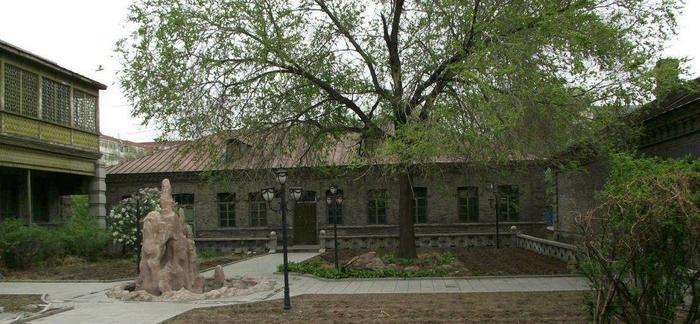
Qiqihar Heilongjiang Dujunshu Jiuzhi.
Frequently Asked Questions
-
What is the Heilongjiang Dujunshu Jiuzhi?
The Heilongjiang Dujunshu Jiuzhi, or the Heilongjiang Military Governor’s Mansion, is a historic site located in Qiqihar, Heilongjiang province, China. Established in 1912, it served as a key political and military command center during the Republic of China era and is notable for its well-preserved architecture that reflects the period’s style. -
Where is the Dujunshu Jiuzhi located?
The site is situated at the northeast corner of the intersection of Bukui Street and Zhonghua Road in Qiqihar City, adjacent to the Qiqihar Museum. -
What are the visiting hours?
The Dujunshu Jiuzhi is open from Tuesday to Sunday, from 9:00 AM to 6:00 PM, with the last entry allowed at 5:30 PM. It is closed on Mondays. -
Is there an admission fee?
Entry to the Heilongjiang Dujunshu Jiuzhi is free of charge, making it accessible for all visitors. -
How much time should I allocate for my visit?
It is recommended to spend about 1 to 2 hours exploring the site to fully appreciate its historical significance and architectural beauty. -
Are there any nearby attractions?
Yes, visitors can also explore nearby attractions such as Longsha Park, the Qiqihar Museum, and the Guandi Temple, all of which offer additional insights into the region’s culture and history. -
What transportation options are available to reach the site?
The Dujunshu Jiuzhi can be easily accessed via public transportation. Buses 101, 103, 106, 10, 11, 104, and 610 travel to the nearby Jiefangmen stop, which is a short walk from the site. Taxis are also readily available from various locations in Qiqihar. -
Are there any dining options nearby?
Yes, several dining options can be found within walking distance, including local eateries that serve traditional dishes, as well as popular fast-food chains like McDonald’s and KFC for those looking for familiar options.
Final Thoughts on Your Trip
Visiting the Heilongjiang Dujunshu Jiuzhi (黑龙江督军署旧址) is more than just a stroll through history; it’s a journey into the heart of China’s struggle for independence and modernity. This iconic site stands as a testament to the resilience of a nation that has weathered storms of change, embodying the spirit of the revolution that reshaped its future. As you explore the beautifully preserved architecture and informative displays, you will gain insight into the pivotal events that unfolded within these walls, including the heroic efforts of figures like General Ma Zhanshan during the early days of the anti-Japanese resistance.
The Dujunshu Jiuzhi is not just a historical monument; it is a cultural hub that connects the past with the present. Engaging with this site allows you to appreciate the rich tapestry of stories that have shaped Heilongjiang, and indeed, China itself. Whether you are a history buff or a curious traveler, the experience here will ignite a deeper understanding of the region’s significance.
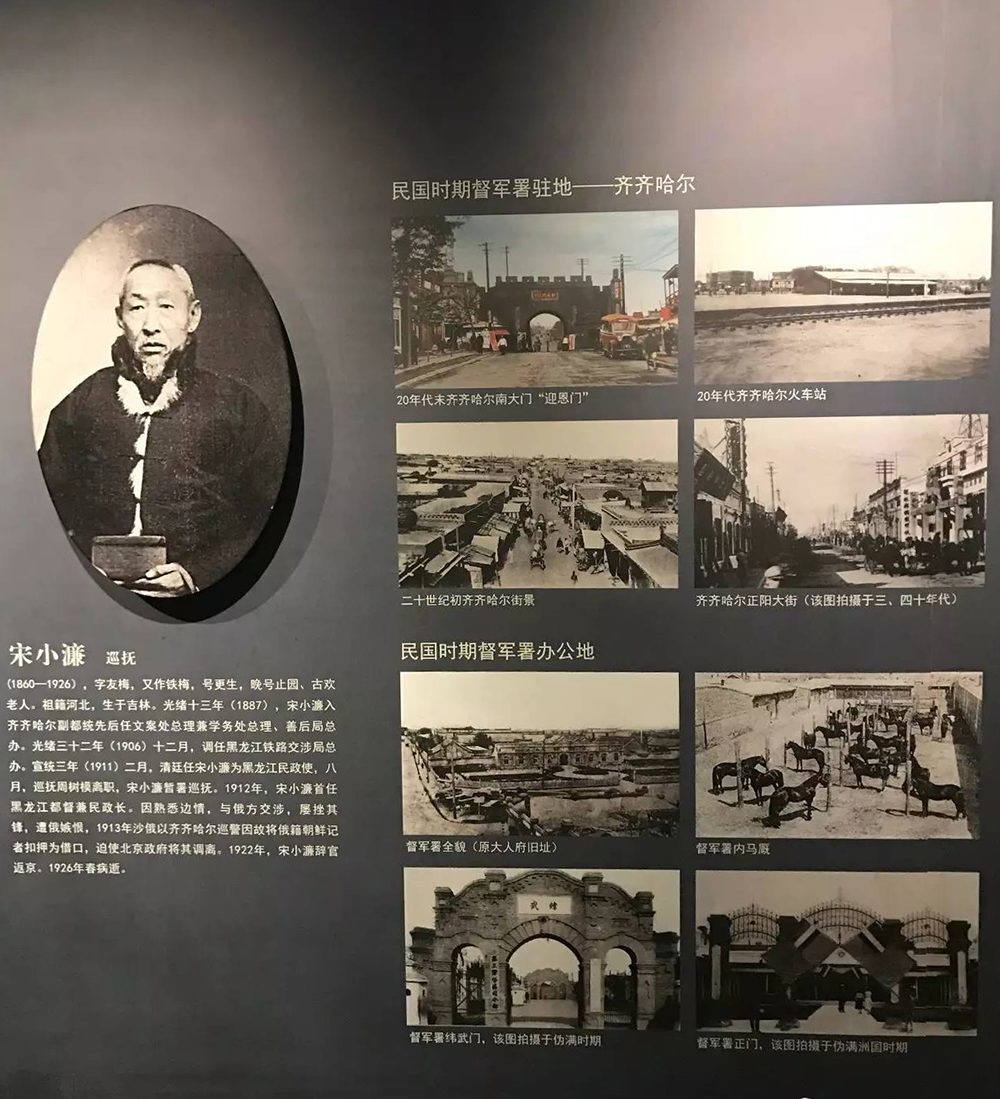
Qiqihar Heilongjiang Dujunshu Jiuzhi.
As you conclude your visit, take a moment to reflect on the enduring legacy of the Dujunshu Jiuzhi, and let it inspire you to carry forth the lessons of courage and determination that resonate through its storied halls. Embrace the spirit of exploration and discovery—your adventure in Qiqihar has only just begun!
